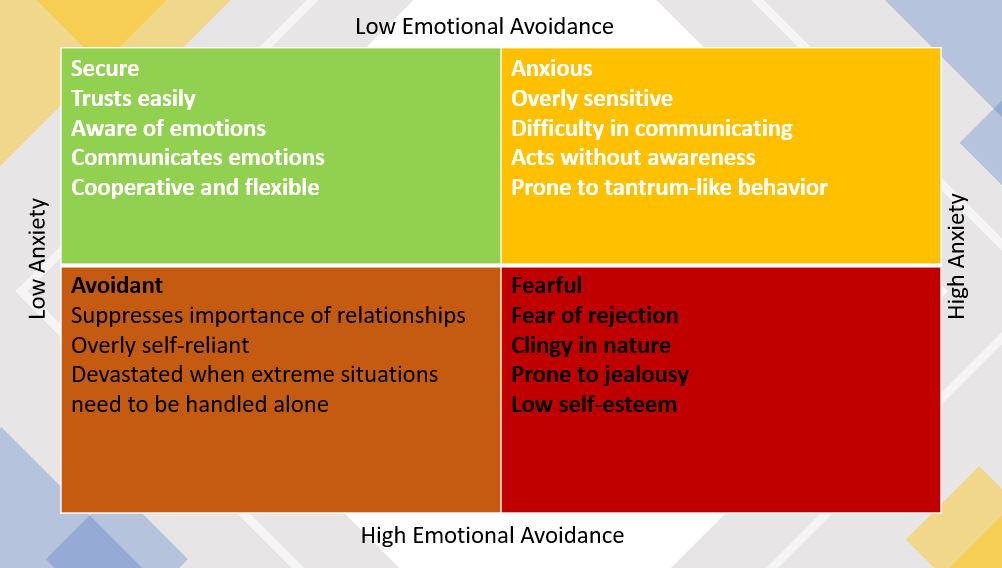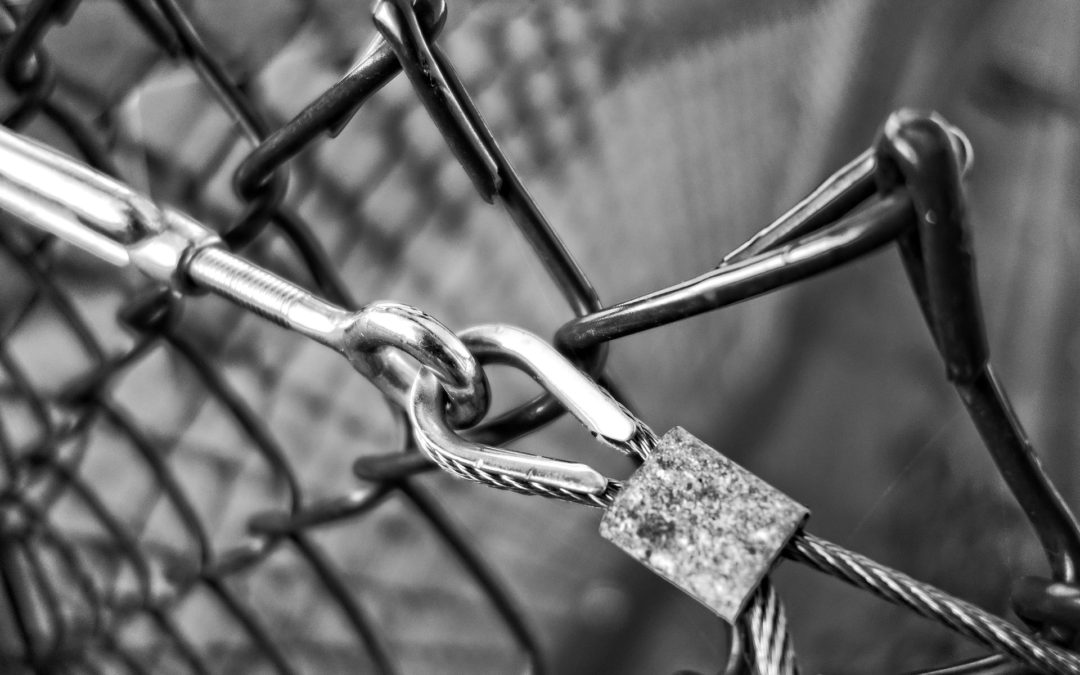“If you tame me, then we will need each other.”
The fox in The Little Prince
I have always faced an expression that is quizzical or full of disbelief when I say that I am not attached to my parents or my husband. The response is as if I had said something sacrilegious. Either the listener does not believe me or they think I am this cold-hearted person who does not care for the people who have done so much for her.
I find myself having to explain myself because this statement is often made to those who are dear to me. I now feel the need to stop making this statement altogether and yet there is something in me that makes me want to explain this. And so, this post that discusses the concept of attachment.
What is Attachment?
Attachment is a deep bond that one creates with another person or thing that allows the subject to feel a sense of security when the object of attachment is present. I modify this statement to include ‘things’ because we seek security from material things as much as we seek it from other human beings.
According to the attachment theory in psychology, there are 4 main attachment styles in adults. The specific attachment style that an adult chooses to adopt is largely based on the parenting styles in childhood.

- Secure – In this style of attachment, one trusts easily, is aware of one’s emotions, communicates what one feels, and has a cooperative and flexible behavior in relationships.
- Anxious–preoccupied – In this style, one is overtly sensitive to what other people say or do, finds it difficult to communicate what one feels, and acts out without awareness when one is faced with something uncomfortable.
- Dismissive–avoidant – When one operates with a dismissive-avoidant style, one suppresses the importance of relationships and tends to assume an extremely independent stance. However, this style is often unreliable when extreme situations lead one to rely on others.
- Fearful-avoidant – There is a dependency on relationships that assumes a clingy nature. Fear of rejection manifests in various ways that result in jealousy indicating low self-esteem and high levels of anxiety.
As is obvious from the various attachment styles, none are exempt from issues.
4 Types of Attachment
According to Zen Buddhism, there are four kinds of attachments that humans form. These are:
- Sense Objects – This category of attachments includes material possessions and people too. It is the pride we feel in having a large collection of watches or shoes, or the latest fashionable clothes. It is the feeling of security we have when we know we have a certain amount of money saved up in the bank or a certain amount of fortune that is at our beck and call. It is also the warm feeling we have when we rely on the support of other people to be there for us in times of need.
- Opinions and Views – This is the attachment that we have with our opinions, beliefs, thoughts, and values. It is the stubbornness we feel when we face someone with opposing views and argue till the dogs come home to emphasize that our point of view is the right one, or the logical one, or the better one.
- Rites and Rituals – This is the attachment we have to our traditions, superstitions, religions, and gods. It manifests in the form of rituals performed to cast away evil, reliance on specific prayers to ward off evil or bring in success.
- Self-hood – Most of all, we are attached to the concept of self. It is the image that we have created for ourselves in our heads. Even though this concept of self is akin to the ego and does not address who we really are. For example, if we call it ‘my body’, then I am not the body (but the body belongs to me). If we call it ‘my mind’ then I am not the mind (but the mind belongs to me). The question for the spiritual seeker then is – who am I? It is also necessary to include relationships in this category because we define ourselves based on relationships to a large extent – we are a daughter or a son, a husband or a wife, a mother or a father, or a brother or sister.
Necessary Evil or Redundant Necessity?
If one looks at the four types of attachments listed by Zen Buddhism, it seems fairly obvious that some of these aspects are fairly necessary in life. Practically speaking, that is true. What would life be without any possessions, without the security of a house or money, without the comfort and trust of loved ones, without our beliefs and opinions, and without a concept of who we are?
However, at a spiritual level, any attachment to any of these aspects can only cause suffering, anxiety, and discomfort.
- When we are attached to things, we are always and to some extent worried about losing them.
- When we are attached to other human beings, their pain becomes our pain as it is transmitted to us via the attachment.
- When we are attached to our opinions, we argue and fight with those with opposing thoughts.
- When we are attached to our rituals, we live in fear of something going wrong when we do not have the security of our good luck charms.
- When we are attached to the concept of a self, we are shaken completely when new and unexpected situations demand that we be flexible.
The decision to continue being attached to something or work towards becoming detached is an individual one. Whether a person is ready in their journey to give up a specific attachment or not is something only they can decide.
How to Let Go of Attachment
Even though the practice of letting go of attachment can take a lifetime, I attempt to cover it in one section of an article. I believe that is possible because there is no specific standard step-by-step method that can be detailed. However, there are some key thoughts that I can leave with you that can help you align your mindset towards detachment.
- Attachment does not mean love. It also does not mean care. You can love and care for another without being attached. In fact, when you are attached to another, you are least able to help when they are in pain because their pain transfers to you. When you are connected and yet not attached, you are able to aid in more constructive ways.
- Attachment leads to insecurities because when you are bonded with something or someone, there is always a threat that it shall be taken away from you. Remember, what you have can be taken away but not what you are!
- When you let go of attachment and concentrate on connection, you understand the meaning of being a part of this universe. You are then able to comprehend the importance of meditating and experiencing yourself as an integral part of the energy that forms this universe.
- Without attachment, you become more accepting of life the way it is. You do not remain a slave of the past and you do not dwell in the future. Your happiness becomes obvious as it becomes unconditional and ever-present!
- As you let go of attachments, you also let go of all expectations and desires. This does not mean that you have to become a monk and live your life as an ascetic. It means that you can enjoy to the fullest all that you DO have without yearning for more. It also does not mean that you will stop working towards a goal but it allows you to do your karma without the expectation of a specific result.
In the end, I would say, letting go of attachment is…
- Living in this world with equanimity,
- Being in the now,
- Appreciating and enjoying what is without complaining about what is not or expecting it to be better or worse in the future)
- Taking action as you deem fit at the moment without being attached to the outcome for it is not in your hands and
- Living a life of peace and coexisting with all the other energies that there are!
If you want to explore how you can let go of the attachments you have, get in touch to have meaningful discussions to explore your true path!
Feature Photo Credits: Image by Mabel Amber from Pixabay


Attachment beautifully described
So glad you liked it!